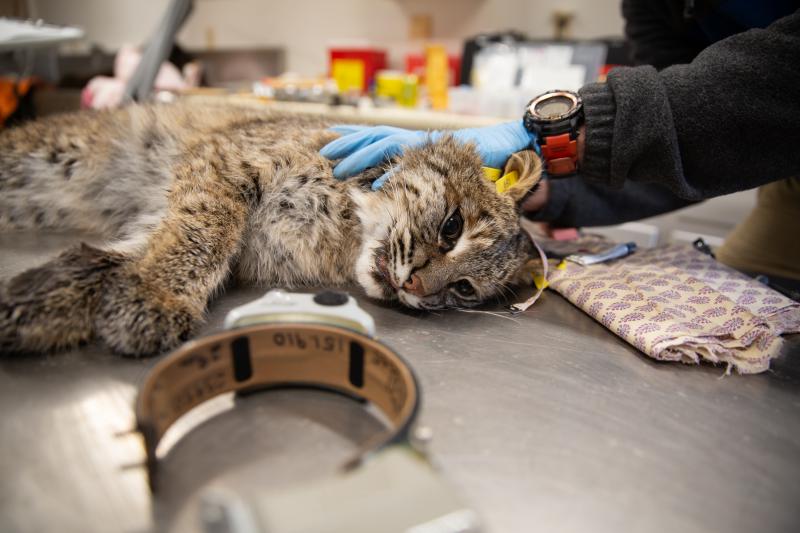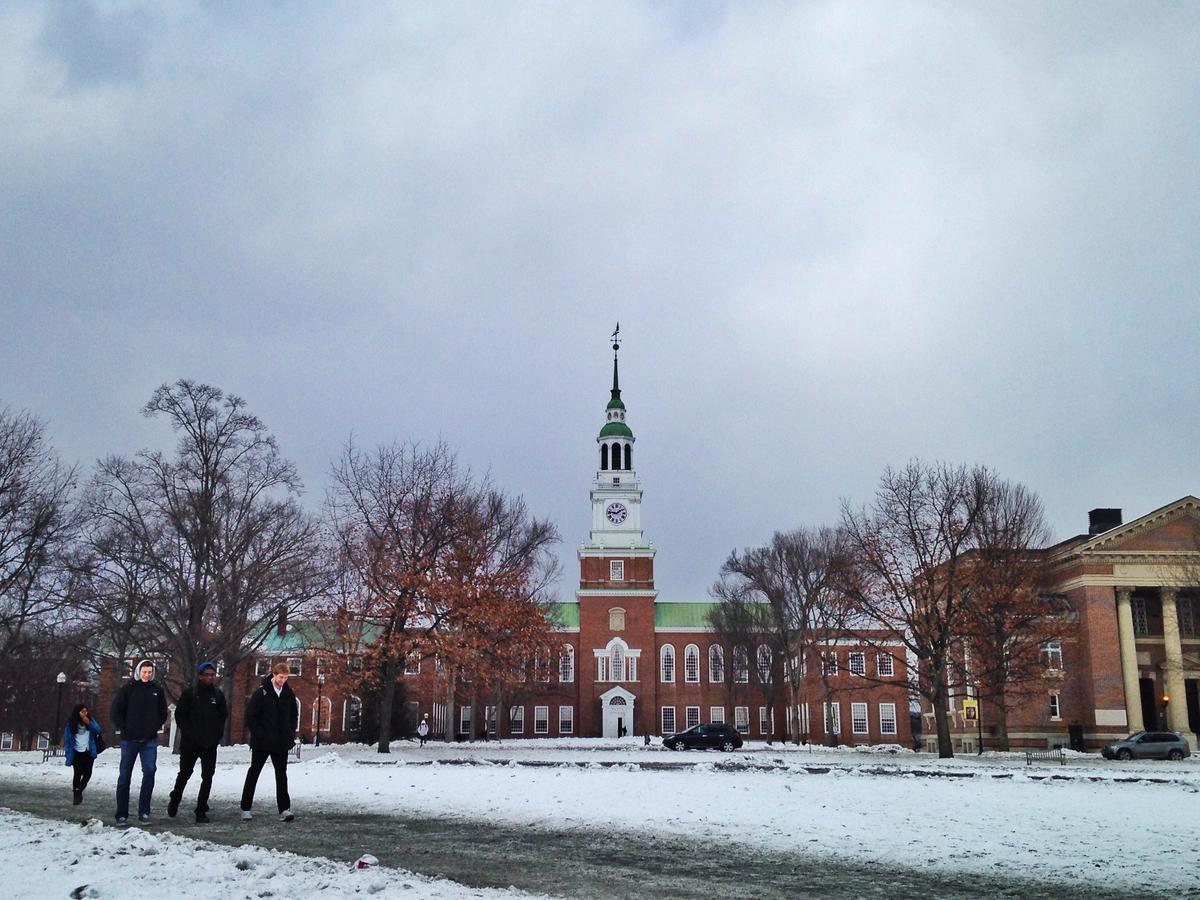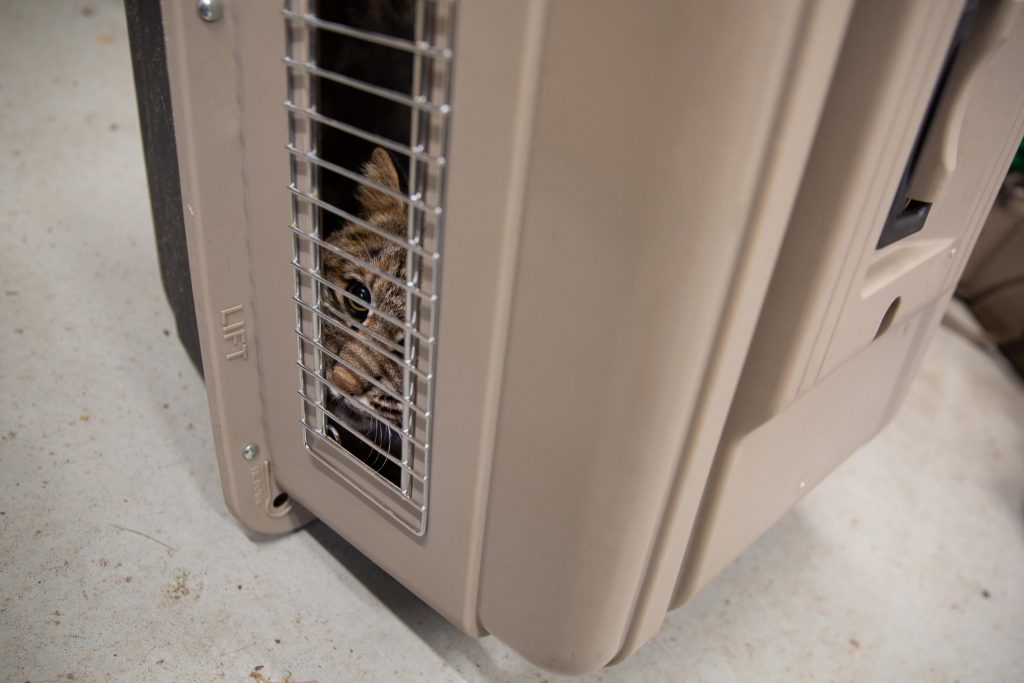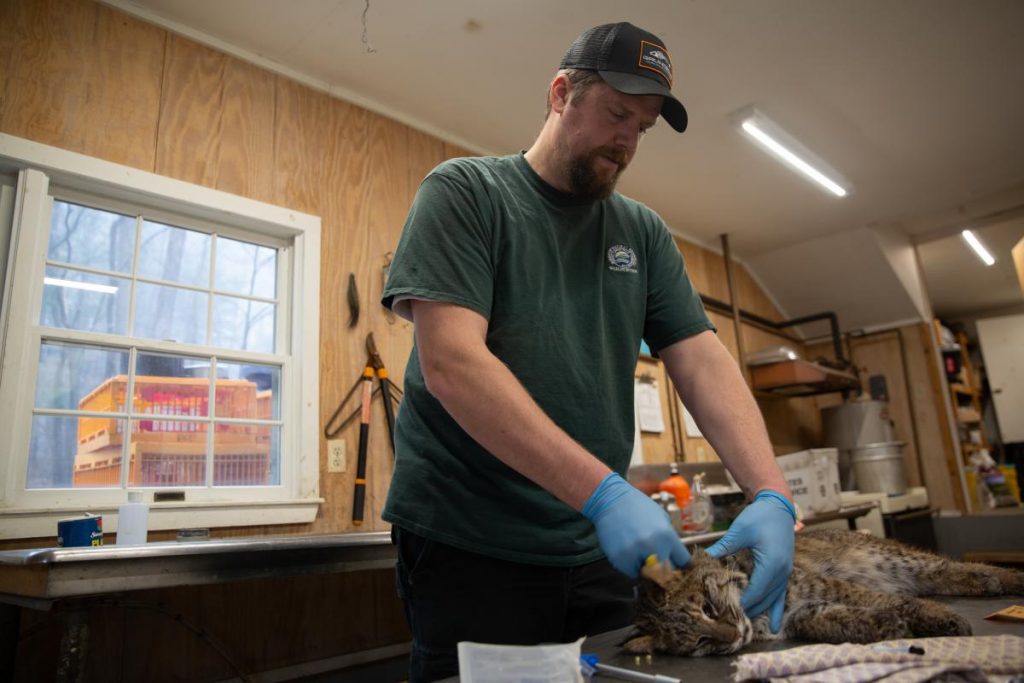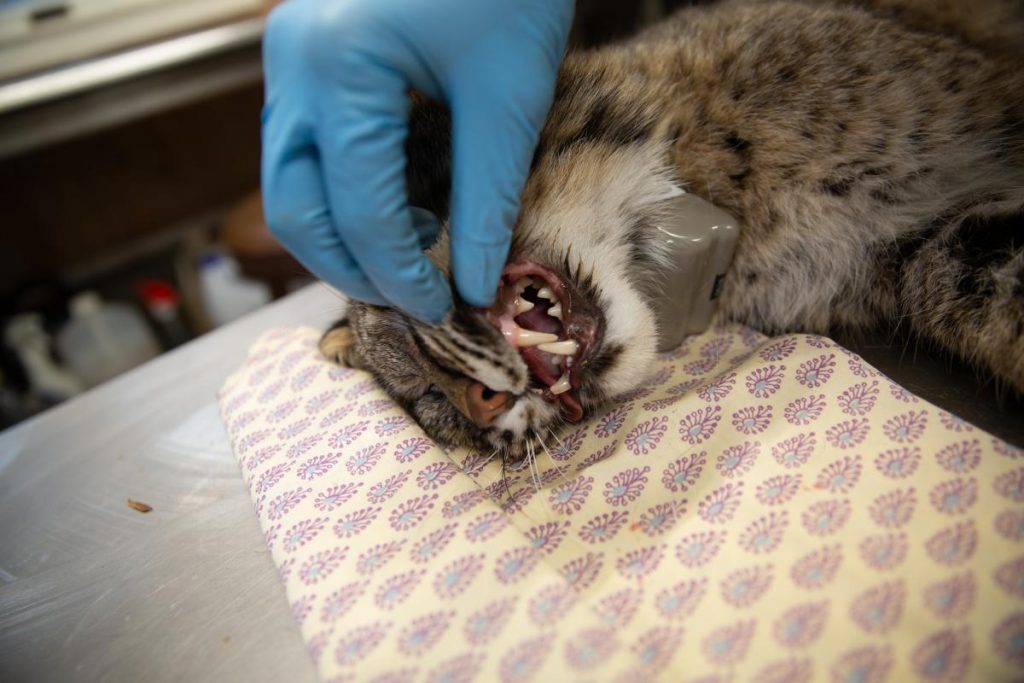Episode 130: Bobcats On The Prowl In New England; Small Colleges Battle To Survive

This week on NEXT: we learn about a lawsuit levied against Dartmouth College.
And, as Hampshire College seeks a “strategic partner,” and as Green Mountain College closes, we discuss the future of small colleges around our region.
Plus, what are the pros and cons of heating with wood? We’ll hear about the health, economic and environmental impacts of the practice.
Finally, we visit Harvard University where the future of a tree is up for debate, and we go with a biologist to learn more about where bobcats live, and what they’re doing.
It’s NEXT.
Lawsuit Calls Dartmouth College a “21st Century Animal House”
We’re going to start our show with trips to a few college campuses, dealing with very different kinds of crises.
First, Dartmouth College, where, in November, seven current and former students sued the college for “gender discrimination, sexual assaults, and harassment.” The lawsuit details what’s being called a “21st Century Animal House,” in which professors held meetings at bars, invited students to “hot tub parties,” and even “invited undergraduate students to use real cocaine during classes related to addiction.”
Dartmouth College formally responded to the suit last week, saying they appropriately handled reports of faculty misconduct. NHPR’s Britta Greene has been following this case, and she joins us to discuss what’s going on.
For more information about the lawsuit, we recommend listening to this segment of WBUR’s Radio Boston.
University of Vermont Student Works to “Explain the Asterisk”
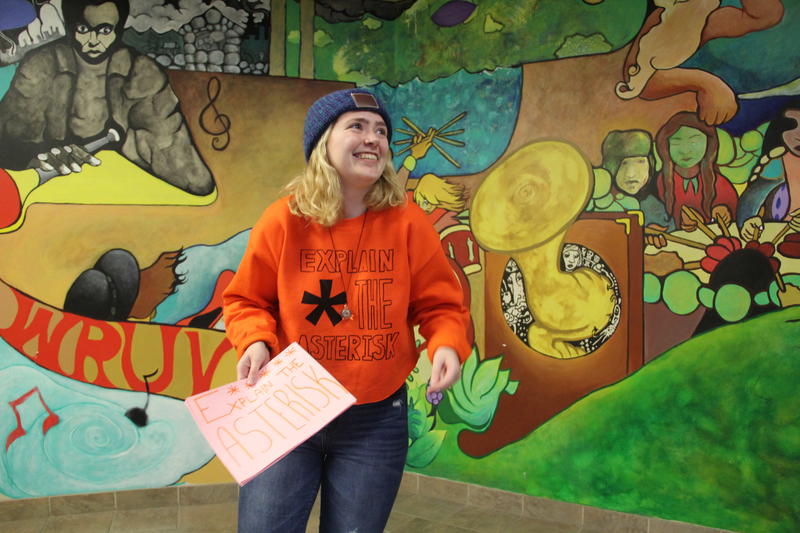
University of Vermont sophomore, Syd Ovitt, has launched a campaign called Explain the Asterisk, to have sexual assault violations added to academic transcripts. Legislators are paying attention. Photo by Bayla Metzger for VPR
When a college student is found guilty of sexual assault, many schools don’t note this on their academic transcripts. That means they’re often able to move on to other schools without anyone knowing their background.
VPR’s Bayla Metzger brings us the story of a University of Vermont student who has launched a campaign to change this. And, lawmakers are paying attention.
The Future of Small Colleges in New England
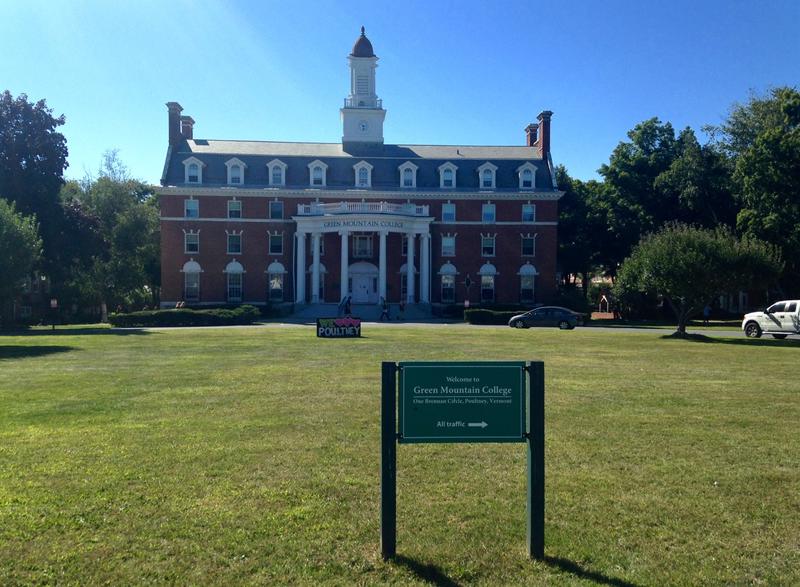
Green Mountain College, in Poultney, announced Wednesday that the school is closing at the end of the spring semester. Photo by Nina Keck for VPR
Hampshire College, in Amherst, Massachusetts announced last week that they are looking for a “strategic partner,” that could help them survive while deciding whether or not to admit a class of students to start at the college in the fall of 2019.
And it’s just the latest headline about the uncertain future of small colleges in our region. Mount Ida College in Newton, Mass. closed in 2018. Wheelock College merged with Boston University. And just this week, Green Mountain College, the 185-year-old school in Western Vermont, said it will close at the end of the spring semester.
Laura Krantz, a higher education reporter for the Boston Globe, and Sue Stuebner, President of Colby-Sawyer College in New London, NH, join us to discuss the future of small colleges in our region.
What are the Pros and Cons of Heating with Wood?
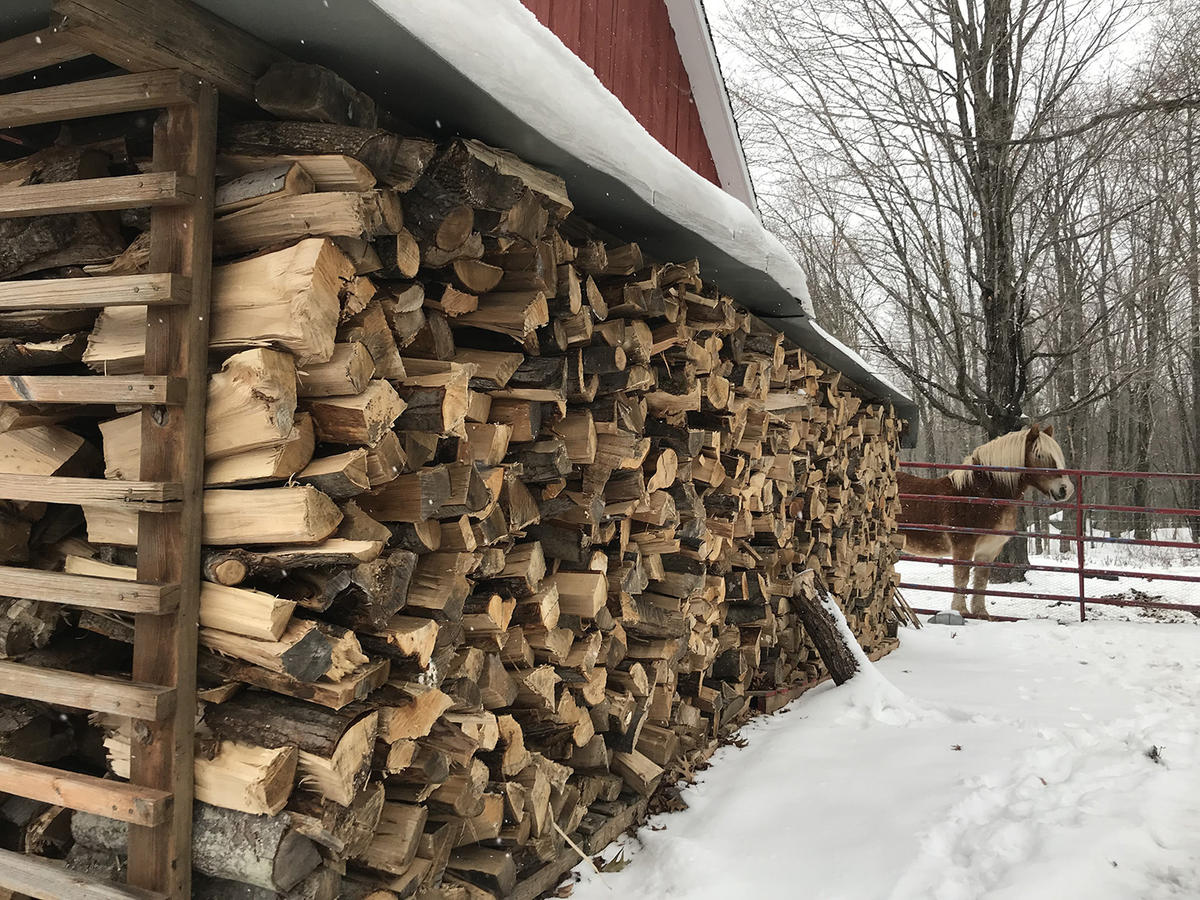
Studies show the tiny particles in wood smoke can be carcinogenic, and they can lead to and exacerbate heart disease, lung disease, and asthma. The risk is highest for kids, elderly people, and anyone with heart or lung problems. Photo by Emily Corwin for VPR
Around New England, people use wood stoves to stay warm all winter long, often thinking that wood heating is good for the environment. It’s gotta be better than, say, oil, right?
But a lot of people question about how clean that energy is. This month VPR’s People Powered Podcast, Brave Little State, set out to answer the question: “What are the environmental and economic benefits of wood heat in Vermont. And what are the costs to that?”
We discussed what they found with VPR’s Emily Corwin and Angela Evancie.
Listen to the full episode here.
Debating the Future of the Harvard Divinity Tree
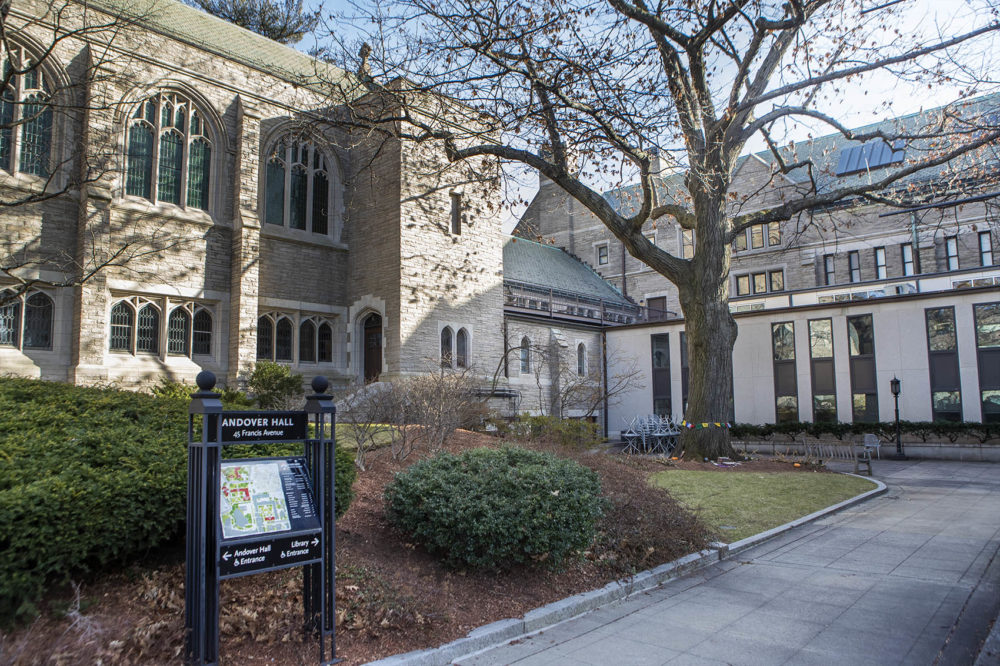
The large red oak tree at the center of a debate at the Harvard Divinity School. The tree is slated for removal to make room to renovate and expand Andover Hall. Photo by Jesse Costa for WBUR
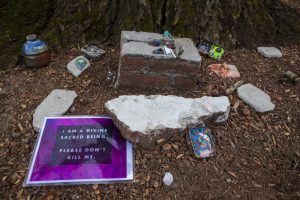
Items left at the base of the tree showing opposition of its removal in front of Andover Hall. Photo by Jesse Costa for WBUR
Harvard’s proposal to renovate a century-old building has come under fire, over plans to cut down a seventy-five-foot red oak tree to make way for a new meeting space.
Urban trees are critical for reducing the effects of climate change, like flooding and extreme heat. And the controversy over this particular tree comes as the city of Cambridge loses about 31 acres of tree cover every year. WBUR’s Barbara Moran has the story.
The Importance of Urban Trees
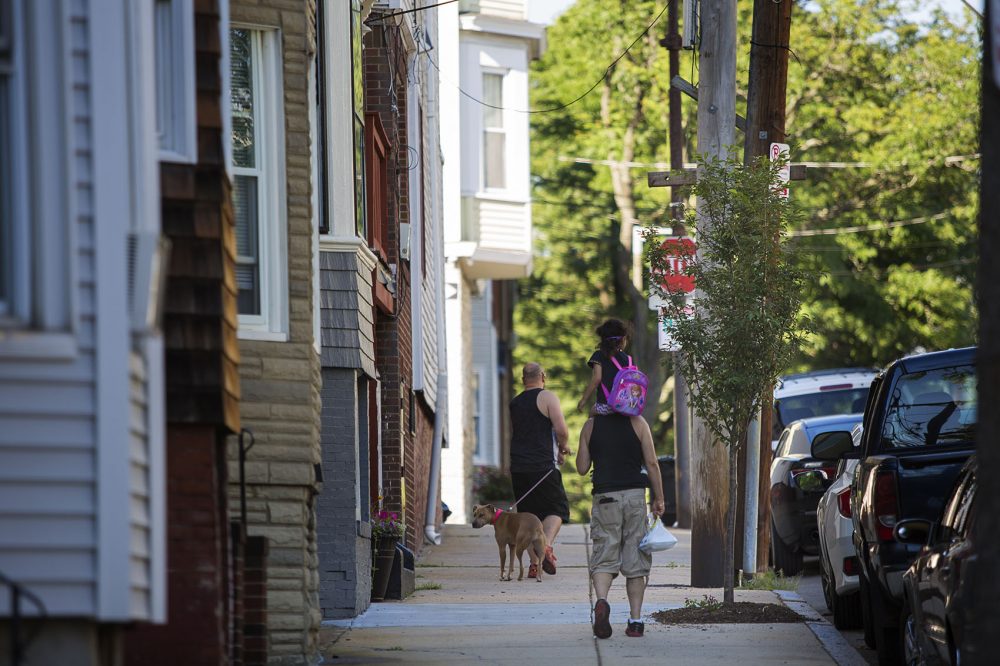
East Boston neighbors walk by a tree recently planted on Trenton Street. Photo by Jesse Costa for WBUR
Barbara’s reporting got us thinking about the importance of urban trees, so we called up Colleen Murphy-Dunning to learn more. She is the Director of the Hixon Center for Urban Ecology and the Urban Resources Initiative at the Yale School of Forestry and Environmental Studies.
Learning from Connecticut’s Bobcats
- The cat began to wake up from its slumber. Photo by Patrick Skahill for Connecticut Public Radio
- Jason Hawley works on a bobcat in a lab at Sessions Woods Wildlife Management Area in Burlington, Conn. After some collaring and sampling work, the cat was released. Photo by Patrick Skahill for Connecticut Public Radio
- The bobcat’s teeth following the procedure. The cat was outfitted with a GPS collar, which will ping location data on the cat. Photo by Patrick Skahill for Connecticut Public Radio
- This female bobcat was tagged and outfitted with a GPS collar, which she’ll wear for 300 days. Photo by Patrick Skahill for Connecticut Public Radio
Finally, we’ll end with the story of an elusive wild cat making a comeback across New England.
As Connecticut Public Radio’s Patrick Skahill reports, bobcats are returning to the region following decades of conservation and forest regrowth. And now that the wild cats are bouncing back, biologists are seeking to learn more about where bobcats are, and what they’re doing.
Photo at the top of the page: This female bobcat was tagged and outfitted with a GPS collar, which she’ll wear for 300 days. Photo by Patrick Skahill for Connecticut Public Radio
About NEXT
NEXT is produced at Connecticut Public Radio
Host: John Dankosky
Producer: Lily Tyson
Digital Producer: Carlos Mejia
Senior Director: Catie Talarski
Contributors to this episode: Britta Greene, Bayla Metzger, Angela Evancie, Emily Corwin, Barbara Moran, Patrick Skahill
Music: Todd Merrell, “New England” by Goodnight Blue Moon, “Where Do We Go” by Solange, “Blue” by First Aid Kit
—
New to NEXT? You can find every episode or one you missed within our archives.
We need your feedback! Send critiques, suggestions, questions, and ideas to next@ctpublic.org. Help us spread the word! If you like what you hear, rate and review us on iTunes.

